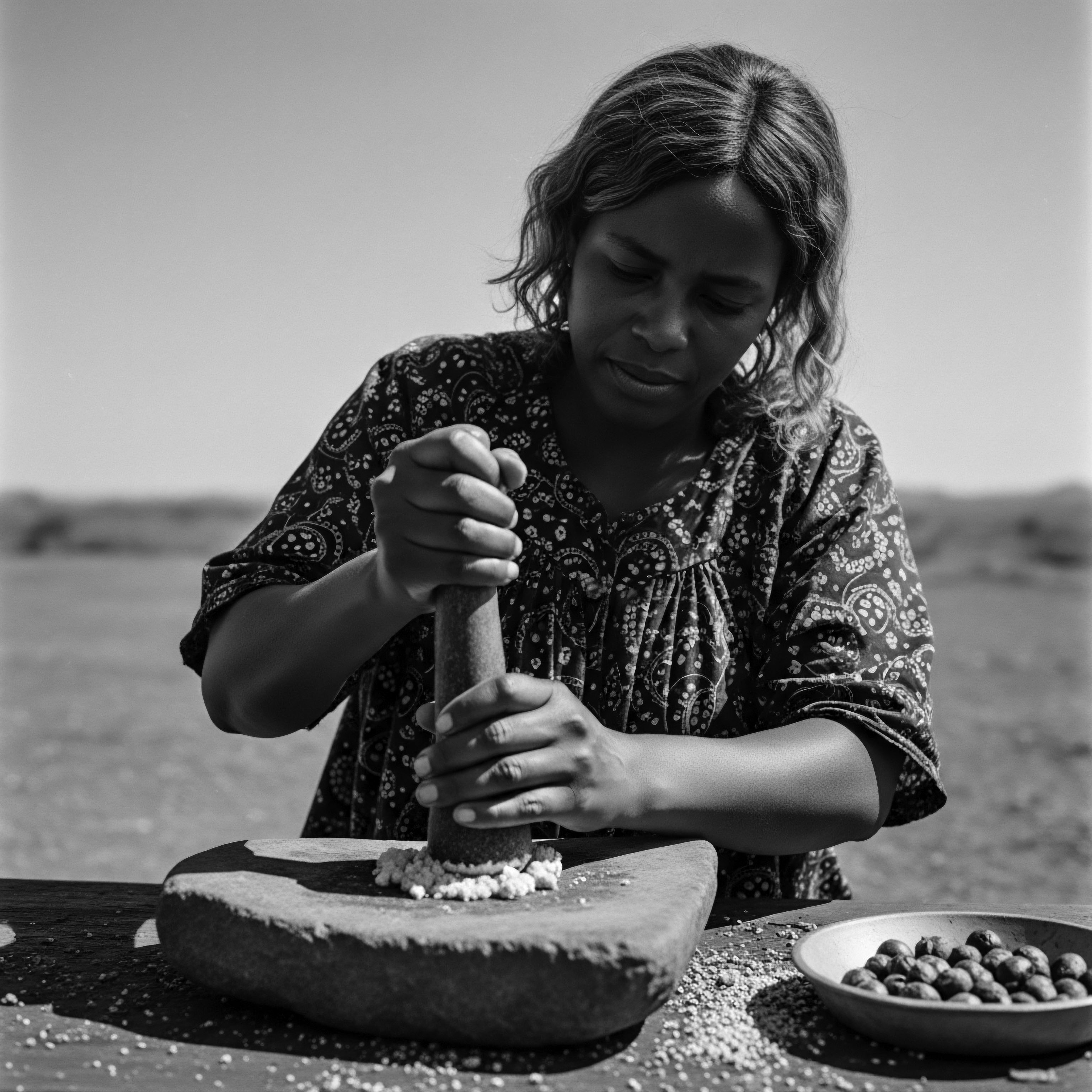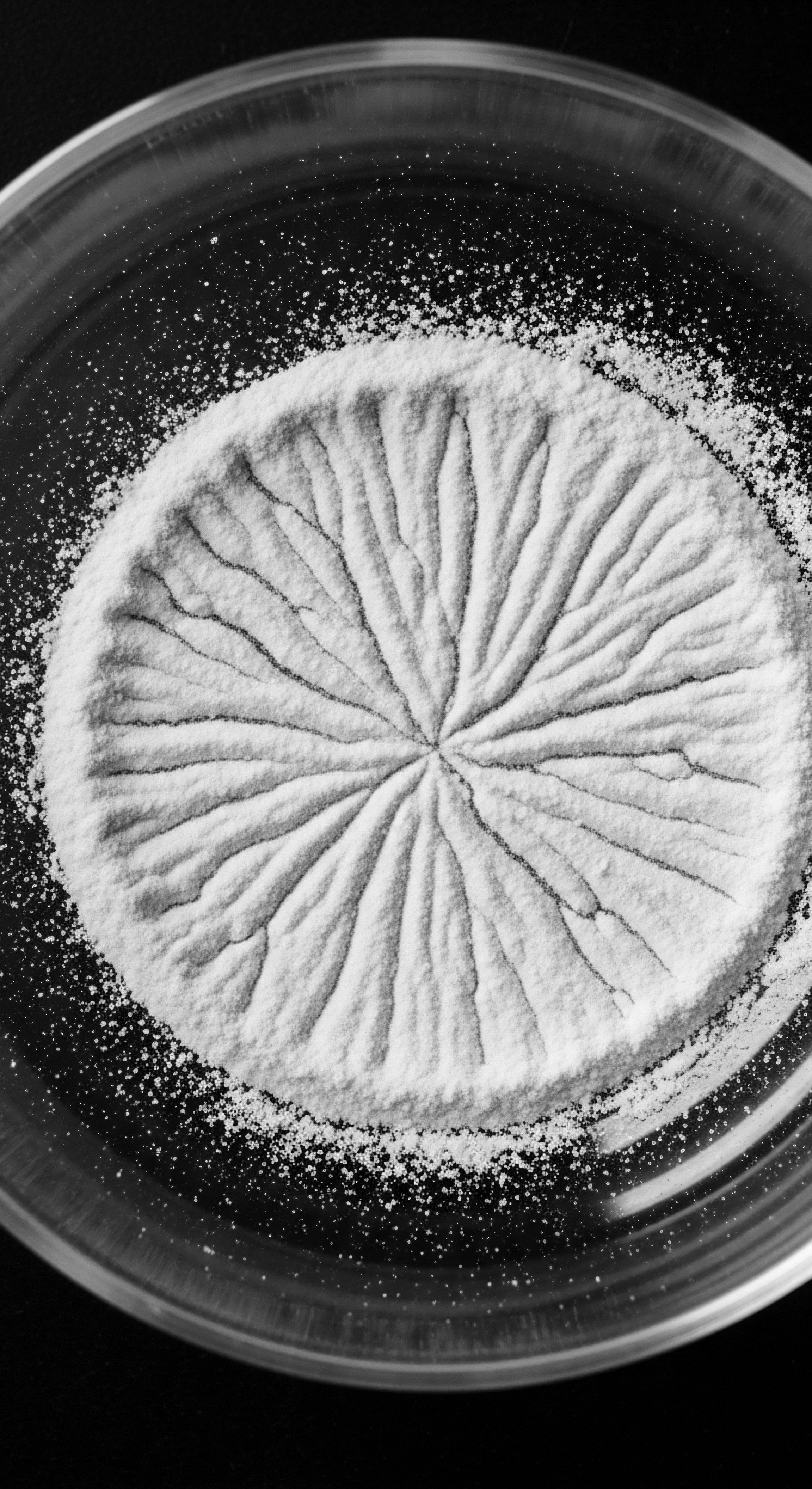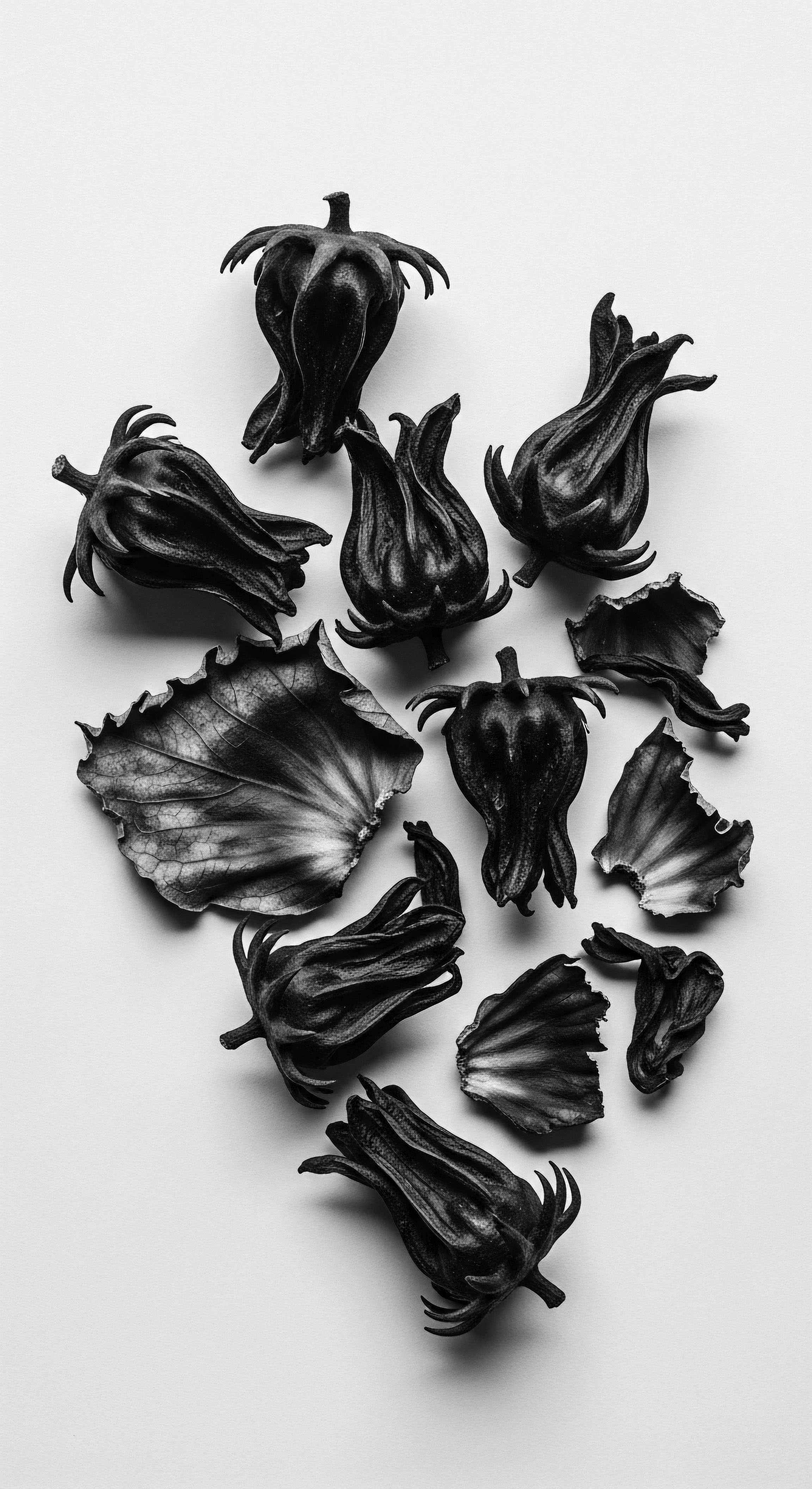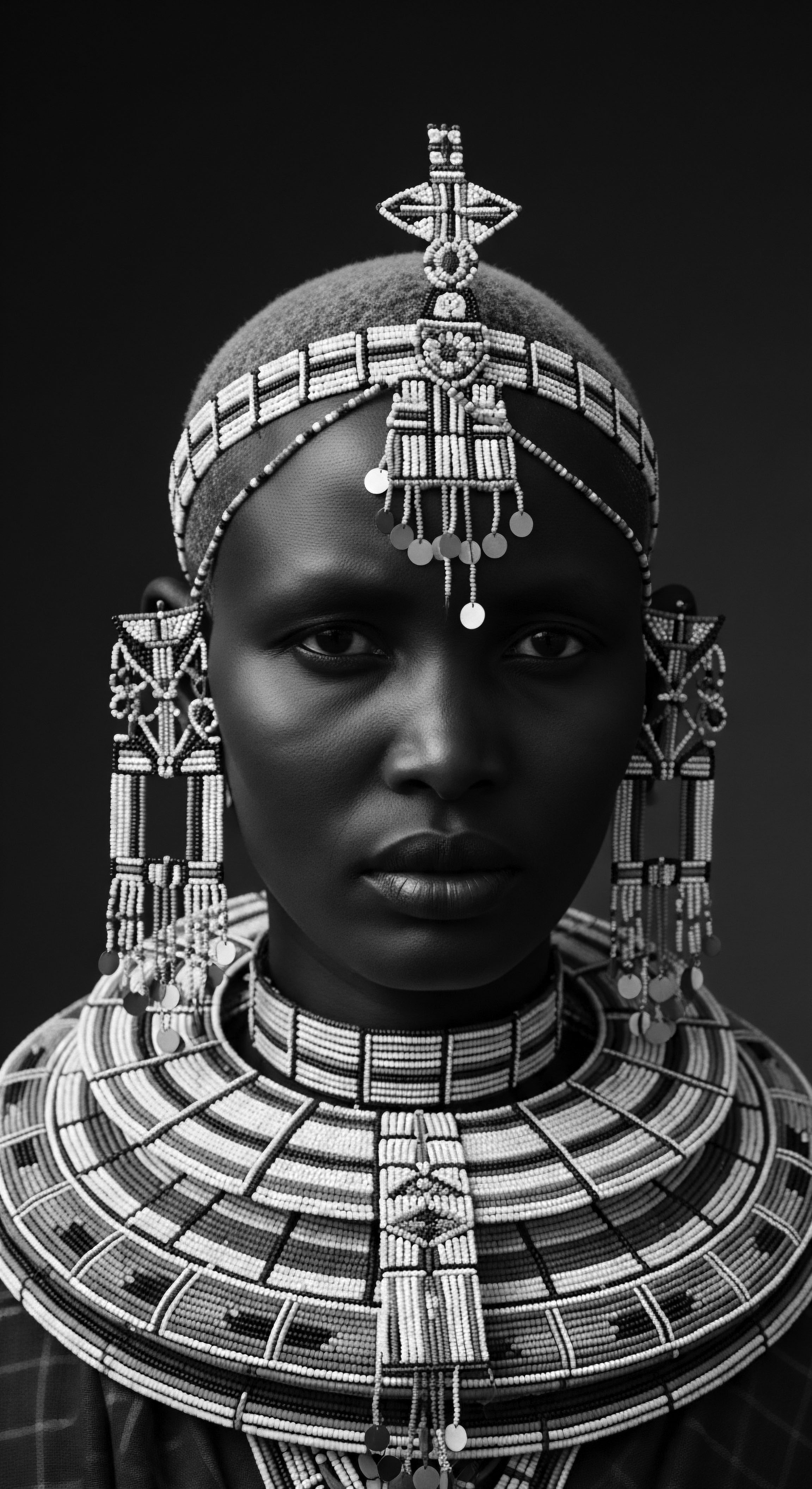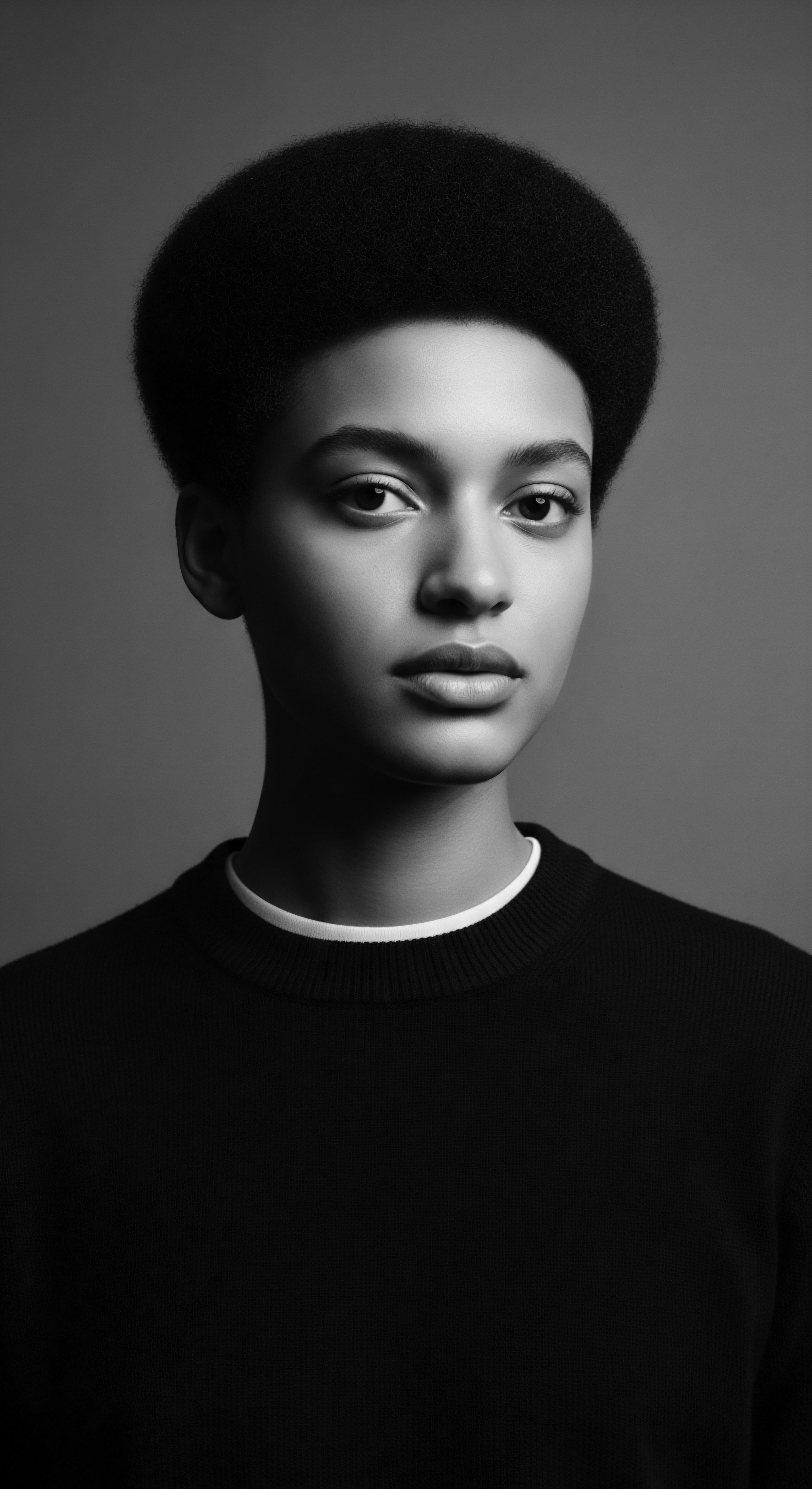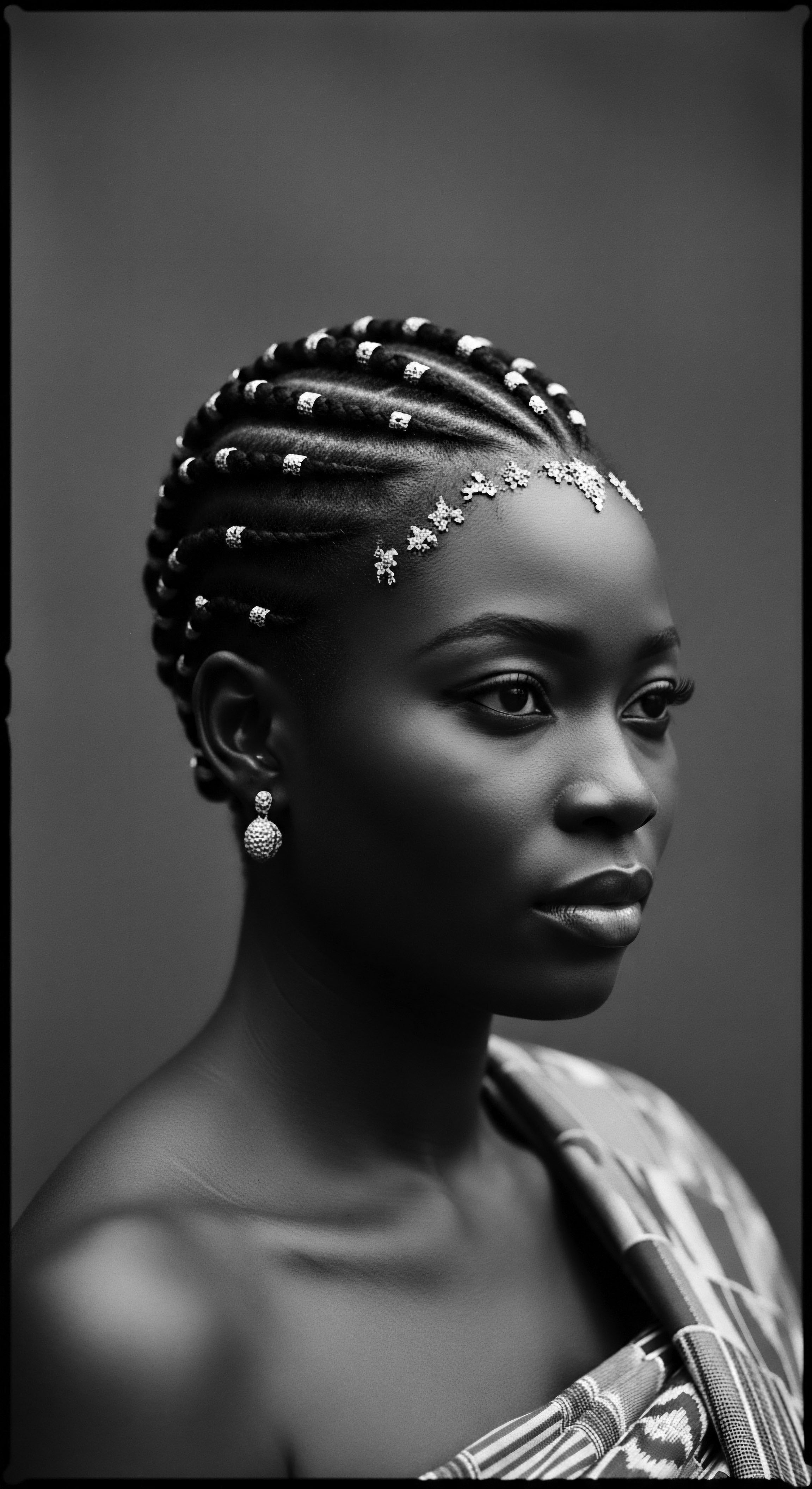
Roots
For those who carry the legacy of textured coils and curls, the journey of understanding one’s hair often begins not with a product, but with an echo ❉ a whisper of wisdom passed through generations. It is a remembrance, a connection to ancient practices that nourished both hair and spirit. To speak of Jamaican Black Castor Oil, then, is to speak of lineage, of earth’s bounty transformed by human hands, becoming a steadfast companion in the complex, sometimes challenging, yet undeniably beautiful story of Black hair.
Consider the castor bean, Ricinus communis, its unassuming appearance belying a deeply rooted history that stretches across continents and centuries. Its genesis traces back to the African continent, an ancestral homeland where this remarkable plant was cultivated and cherished for its versatile properties long before colonial ships navigated new horizons. Early civilizations recognized the potent properties within these seeds, often pressing them for a viscous oil used for various purposes ❉ from lamp fuel to skin emollients, and yes, for the care of hair.
This botanical journey, from its African heartland across the vast ocean to the Caribbean, particularly Jamaica, marks a significant chapter in its heritage. The plant arrived in the Americas through the painful crucible of the transatlantic passage, brought by enslaved individuals who, even in their profound suffering, carried with them invaluable botanical knowledge and ancestral practices.
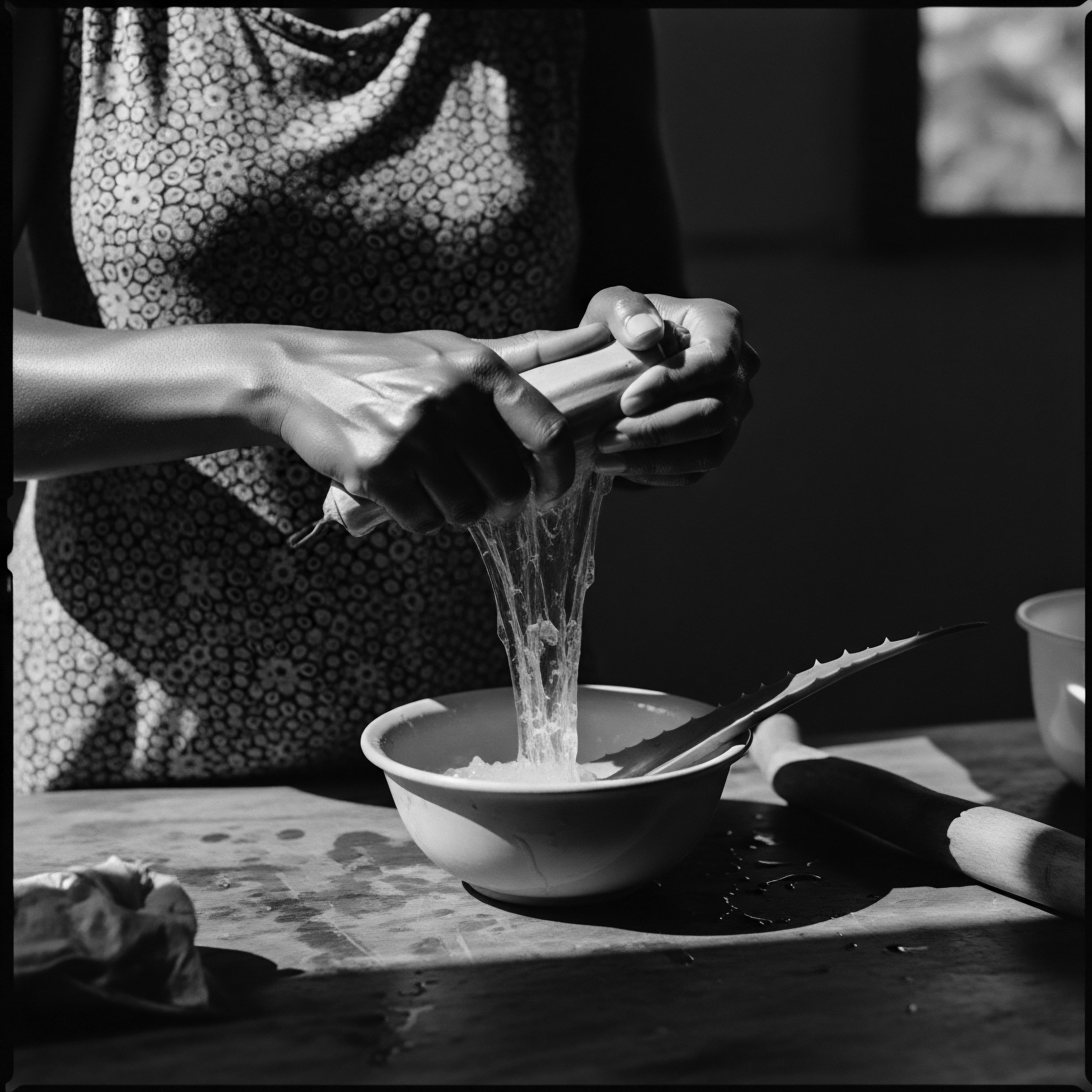
The Sacred Seed from Ancient Lands
The very act of preparing castor oil on Jamaican soil transformed it, lending it the distinct character known today as “black” castor oil. This unique designation does not stem from the bean itself being black, but from the traditional method of its creation. The seeds are first harvested, cleaned, and then roasted. This roasting process, typically over a wood fire, introduces ash into the mixture.
The roasted beans are then ground into a paste, which is boiled with water. As the mixture simmers, the oil separates and rises to the surface, where it is skimmed off. The ash from the roasting process is what gives Jamaican Black Castor Oil its distinctive dark color and, according to traditional belief, contributes to its potency. This method, steeped in practicality and ancestral know-how, mirrors processes found in various African communities, where plant materials were often roasted or charred to enhance properties or aid extraction. It is a testament to the ingenuity and resilience of a people who preserved their healing and beautifying traditions even amidst the severest disruption.
Jamaican Black Castor Oil embodies a living link to ancestral knowledge, a symbol of resilience passed through generations.
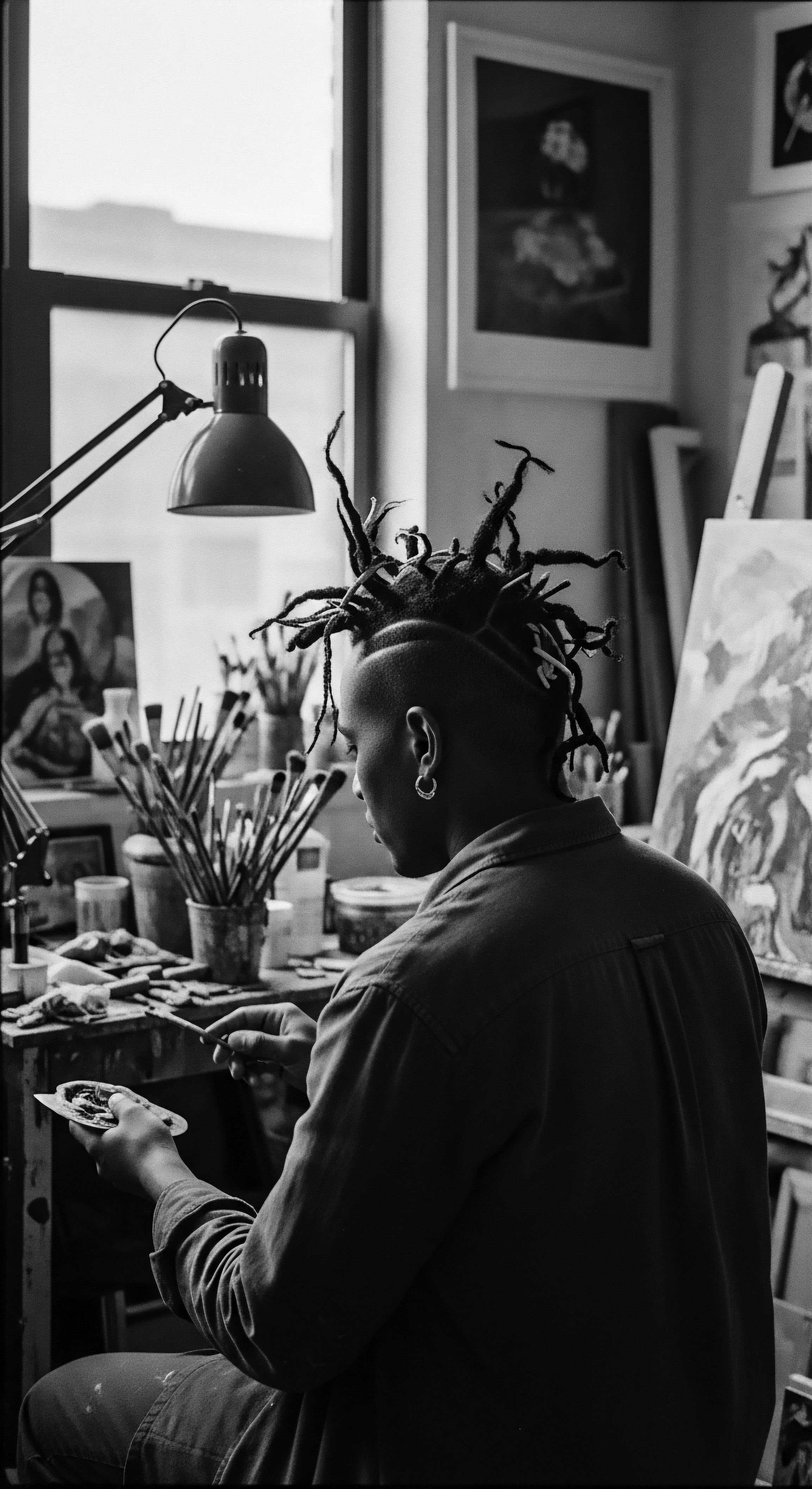
How Does JBCO Interact with Hair’s Inner World?
Within the realm of science, the efficacy of Jamaican Black Castor Oil can be understood through its distinctive chemical composition. The oil is rich in ricinoleic acid, a monounsaturated fatty acid that constitutes nearly 90% of its content. This particular fatty acid is an anomaly in the world of oils, offering properties that researchers continue to examine. Ricinoleic acid is believed to possess anti-inflammatory qualities, a factor that might contribute to a healthier scalp environment ❉ a cornerstone for robust hair growth.
A healthy scalp provides the optimal foundation for hair follicles, which are, after all, the anchors of our strands. When the scalp is calm and free from irritation, the conditions for growth improve significantly.
Beyond ricinoleic acid, JBCO also holds other fatty acids, including oleic acid and linoleic acid, alongside vitamin E. These components collectively contribute to the oil’s emollient properties. Textured hair, by its very nature, tends to be drier than straighter hair types due to the elliptical shape of the follicle and the coiling pattern of the strand. This shape can impede the natural sebum (scalp oil) from easily traveling down the hair shaft, leaving the ends particularly vulnerable to dryness and breakage.
JBCO, with its viscous consistency, effectively coats the hair shaft, providing a protective barrier that helps to seal in moisture and reduce water loss. This is not merely about hydration; it addresses the inherent structural needs of coils and curls, supporting their integrity from root to tip.
The connection between JBCO and textured hair is a profound one. It is a story of how elemental biology aligns with ancestral wisdom. The ancestors, through observation and trial, understood that this particular oil offered solace and strength to their hair.
Modern science now provides a lens through which we can scrutinize and, in many cases, validate these long-held truths. The oil’s ability to coat and protect, coupled with its potential to support scalp health, speaks to a deep, intuitive understanding that has transcended time.
- Botanical Origins ❉ The castor bean, Ricinus communis, has ancient roots in Africa, its properties recognized and utilized by early civilizations.
- Diasporic Journey ❉ Carried by enslaved Africans to the Caribbean, the plant and its preparation methods survived, adapting to new environments.
- Unique Preparation ❉ The traditional roasting of beans, incorporating ash, gives Jamaican Black Castor Oil its distinct dark hue and name, linking it to traditional African preparation methods.
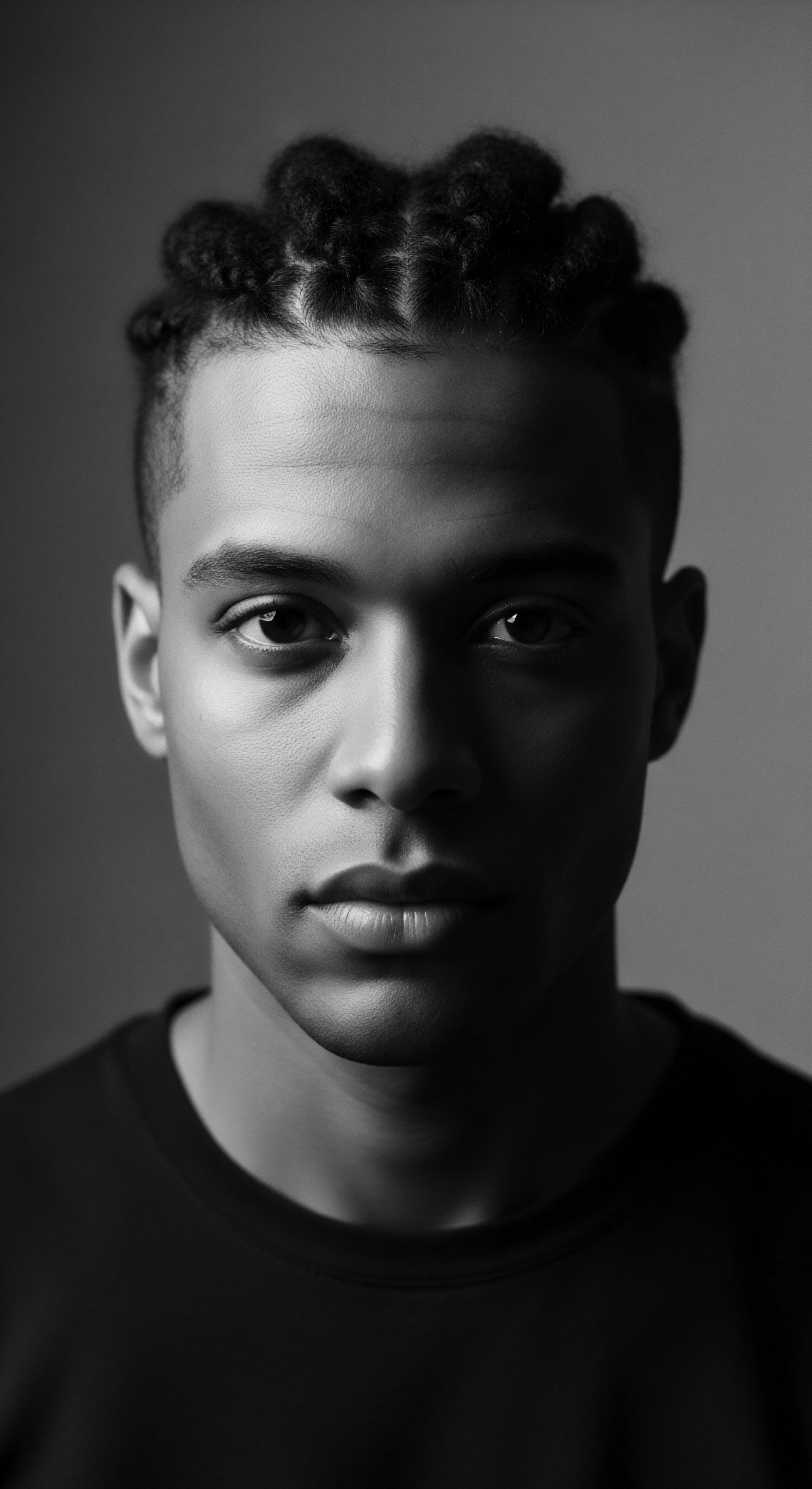
Ritual
The journey of Jamaican Black Castor Oil is not a solitary path from seed to bottle; it is intertwined with human hands, shared stories, and the continuous practice of care. Within Black communities, hair care has always transcended mere aesthetics. It functions as a ritual, a sacred practice of self-preservation and community connection. JBCO became a central character in these moments, a tangible link to heritage, a balm for both scalp and soul.
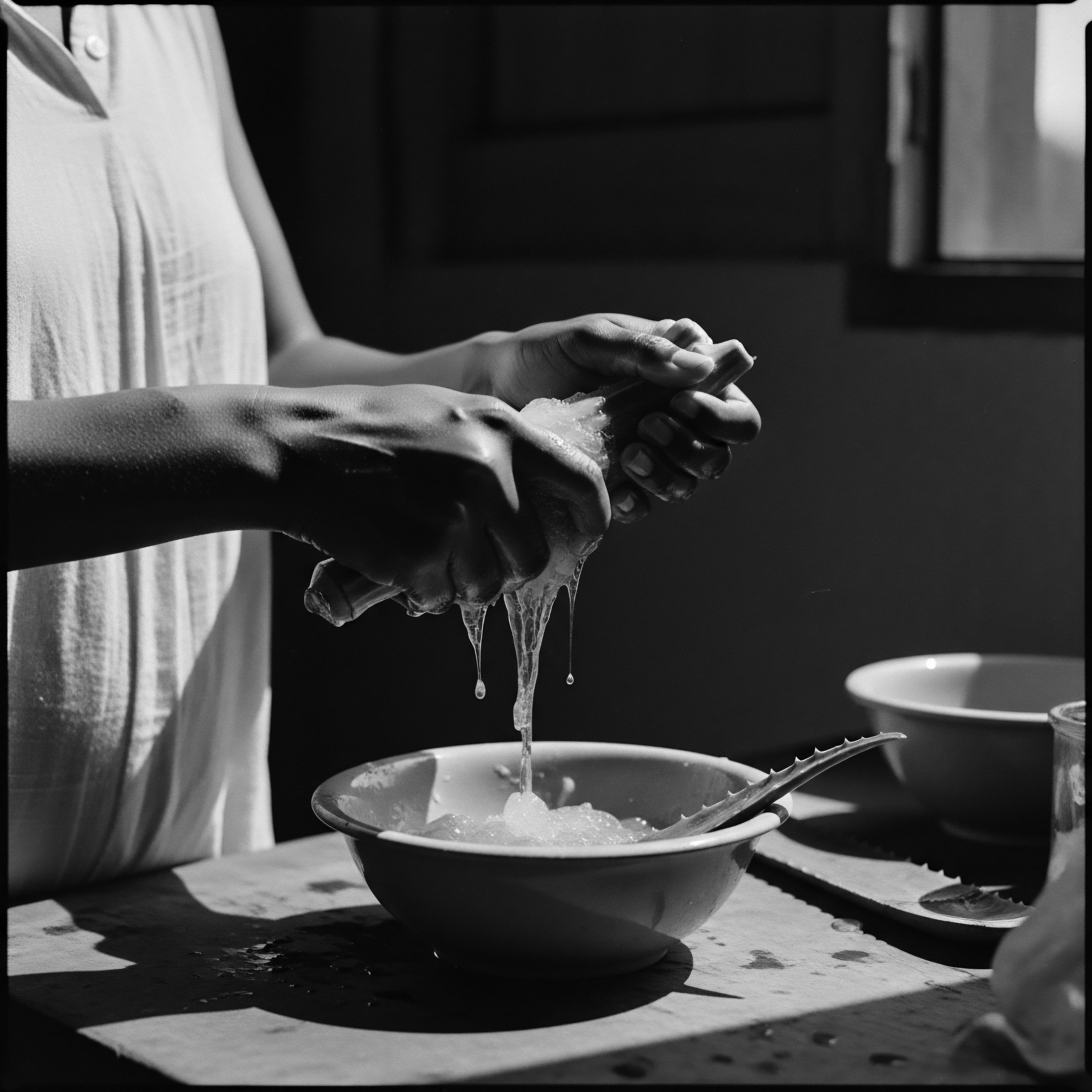
What Made JBCO Central to Hair Care Rituals?
Consider the Sunday morning hair rituals of generations past ❉ a child seated between a parent’s knees, the scent of oil and herbs filling the air. These were not just hair sessions; they were lessons in self-care, cultural transmission, and quiet bonding. Jamaican Black Castor Oil, often warmed slightly, was meticulously massaged into the scalp, its thick consistency allowing for deliberate, grounding movements.
This practice was believed to stimulate blood circulation, which, even without modern scientific tools, was intuitively understood as beneficial for hair health. The oil was then drawn through the lengths of the hair, preparing it for intricate braiding patterns, twists, or cornrows ❉ styles that were not only protective but also carried deep cultural and historical significance.
These styling techniques, many with direct ancestral roots in African societies, were acts of ingenuity and artistry. Braids, for example, served not just as adornment but also as practical means of managing textured hair, protecting it from environmental stressors, and minimizing tangles. JBCO provided the necessary lubrication and sealing properties to ensure these styles lasted, preserving the integrity of the hair underneath. The oil’s density helped to hold moisture within the hair shaft, a vital function for coils and curls prone to dryness, making it an indispensable element in maintaining these protective styles.
JBCO stands as a cornerstone in Black hair care traditions, embodying both practical nourishment and cultural continuity.
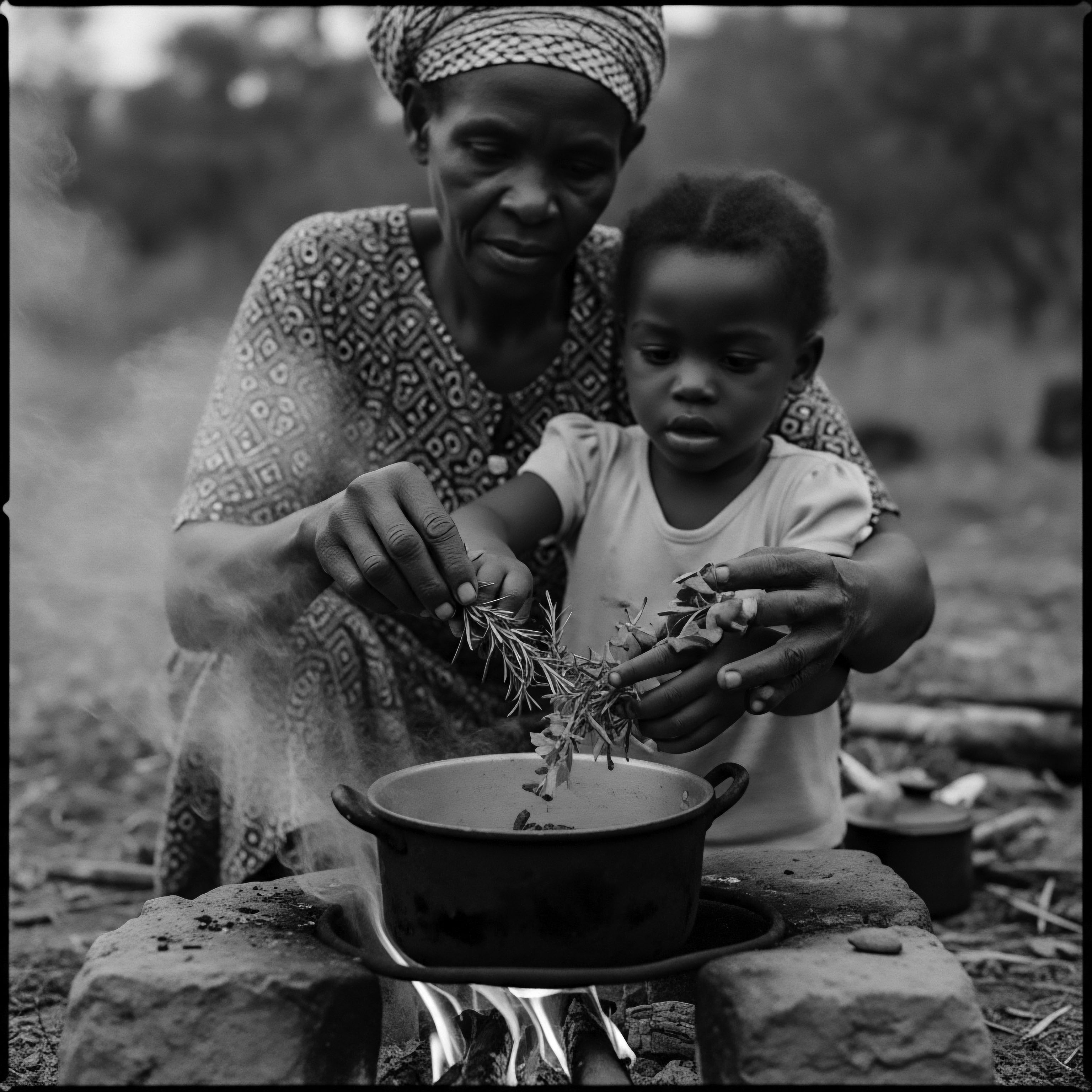
How Did Ancestral Practices Sustain Cultural Identity?
The role of Jamaican Black Castor Oil within these rituals points to a deeper truth about Black hair heritage: the unwavering commitment to care despite oppressive systems that often sought to erase Black identity. During periods of enslavement and subsequent racial discrimination, Black hair was frequently demeaned and subjected to Eurocentric beauty standards. Yet, the practices of caring for textured hair persisted, often in private spaces, becoming acts of quiet defiance and self-affirmation. The continuity of using ancestral ingredients like castor oil was a defiant whisper of remembrance, a way to maintain a connection to one’s roots and cultural identity when so much else was stripped away.
This is not merely anecdotal; sociological studies on Black beauty practices confirm the enduring nature of these traditions. For example, research by Byrd and Tharps (2001) chronicles how hair care has been a persistent site of cultural expression and resistance for Black Americans, with traditional products like castor oil maintaining their importance. This historical persistence is a testament to the profound cultural resonance of JBCO.
The tools of this heritage are simple yet profound. Fingers, the primary instrument, became extensions of care, gently detangling and sectioning. Wide-tooth combs, often handcrafted in earlier times, worked in harmony with the oil to glide through dense textures.
Even simple cloths became part of the ritual, used to apply warmth or blot excess. These elements, combined with the oil, formed a cohesive system of care that prioritized the hair’s natural inclinations, rather than attempting to force it into unnatural forms.
Understanding the ceremonial aspects of JBCO use sheds light on its deeper meaning. It is not just about a healthy scalp or growing hair; it is about reclaiming narratives, honoring ancestors, and grounding oneself in a legacy of self-possession. The very act of applying the oil is a connection to a continuous chain of knowledge and care, a thread that spans time and distance, linking generations.
- Deliberate Application ❉ Warmed oil was gently massaged into the scalp, a practice believed to invigorate the hair follicles.
- Moisture Sealing ❉ Its viscosity helped to coat and protect hair strands, sealing in moisture crucial for textured hair.
- Style Longevity ❉ Aided in the lasting power of protective styles, guarding against breakage and environmental stressors.
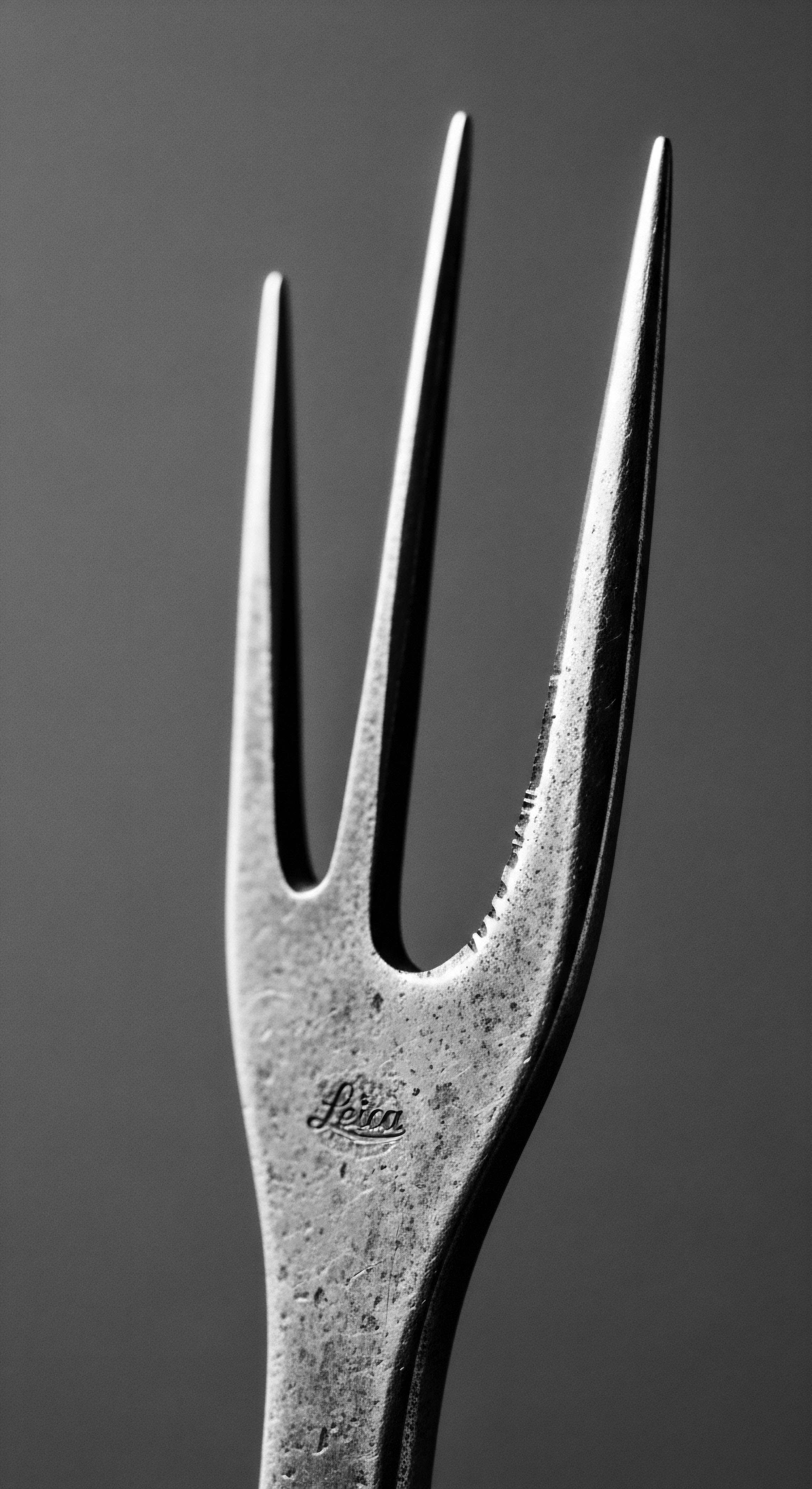
Relay
The legacy of Jamaican Black Castor Oil, carefully preserved through generations, now finds itself at the crossroads of ancestral wisdom and modern scientific inquiry. This intersection illuminates not only the how, but the why, of its enduring presence in textured hair care. The relay of knowledge, from elder to youth, now gains an added dimension through scientific explanation, reinforcing the profound understanding our ancestors held.
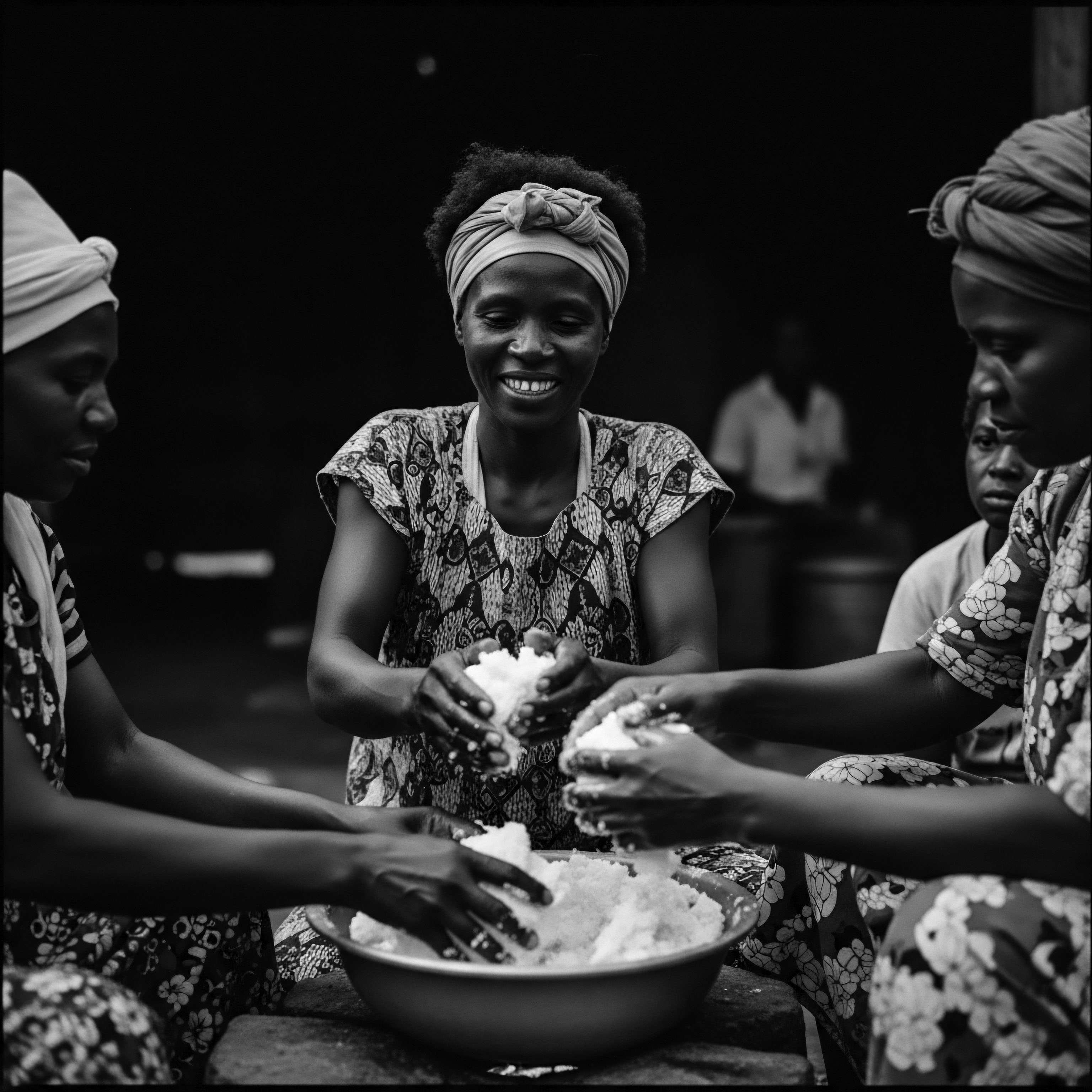
Can Modern Science Validate Ancient Hair Practices?
The scientific gaze has indeed turned to the very compounds that our forebears intuitively understood to be beneficial. Ricinoleic acid, the prominent fatty acid in castor oil, has been studied for its potential properties beyond simple moisturization. Research suggests it may influence prostaglandin E2 receptors, which could play a part in hair growth cycles (N. S.
Murugesan, 2012). While direct, comprehensive human trials on castor oil and hair growth are still areas of ongoing investigation, these preliminary scientific insights provide a fascinating lens through which to view centuries of empirical evidence from communities. This dialogue between traditional knowledge and modern research strengthens the narrative of JBCO, showing how empirical observation, honed over time, often aligns with what laboratory analysis eventually discerns.
Consider the challenges historically faced by textured hair ❉ inherent dryness, susceptibility to breakage, and sometimes, scalp irritation from environmental factors or styling practices. Jamaican Black Castor Oil became a potent solution for these issues. Its thick consistency acts as an exceptional occlusive, creating a barrier on the hair shaft that significantly reduces transepidermal water loss.
This means the moisture already within the hair is less likely to escape, keeping the strands more supple and less prone to brittleness. For a hair type characterized by its often porous nature, this sealing quality is not merely a cosmetic benefit; it is a fundamental aspect of maintaining structural integrity and preventing mechanical damage.
The story of Jamaican Black Castor Oil bridges ancestral wisdom and contemporary science, proving its timeless value.
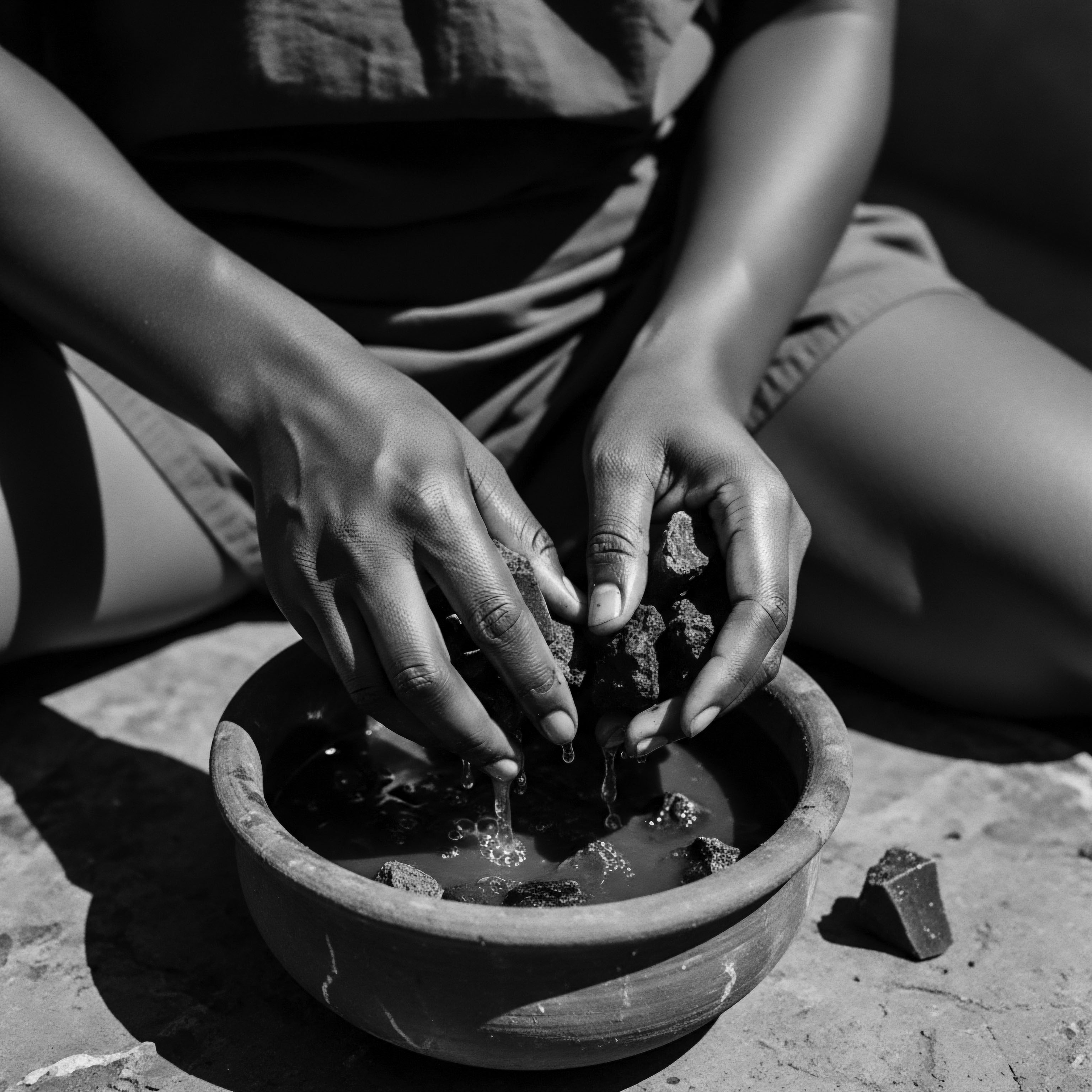
How Does JBCO Reinforce Textured Hair Identity?
Beyond the physiological benefits, the sustained use of Jamaican Black Castor Oil speaks to a deeper cultural truth: it represents an affirmation of textured hair in its natural state. In a world that often pressures conformity, the choice to nourish one’s coils and curls with an ancestral oil becomes an act of self-love and cultural pride. This isn’t just about hair growth; it relates to the psychological and social well-being connected to identity.
The oil, therefore, transcends its material form, acting as a symbol of self-acceptance and a connection to a rich, often suppressed, heritage. It is a tangible link to a past where Black individuals found strength and beauty in their unique physiological attributes, transforming perceived vulnerabilities into sources of power and identity.
The continuity of this practice through generations, despite attempts to impose alternative beauty standards, stands as a testament to the resilience of cultural memory. The “Relay” is a continuous handing down of tradition, where the efficacy of JBCO is proven not just by scientific analysis, but by the living testimonies of countless individuals whose hair has thrived under its care. This collective experience, passed through familial lines, forms a robust body of knowledge that complements formal research.
The very presence of JBCO in modern beauty aisles is a quiet revolution. It signifies the mainstream acknowledgment of traditional Black hair practices and the ingredients that underpin them. This recognition is not just commercial; it represents a societal shift towards valuing diverse beauty expressions and acknowledging the historical wisdom embedded within specific cultural practices. The oil, once a secret passed in hushed tones, now openly champions the beauty and strength of textured hair on a global stage.
This blend of the ancient and the contemporary, the empirical and the analytical, shapes the ongoing story of Jamaican Black Castor Oil. It is a powerful affirmation that the wisdom of our ancestors was not merely folklore, but a deeply practical and effective system of care, continually validated by the thriving strands it has nurtured across the centuries.
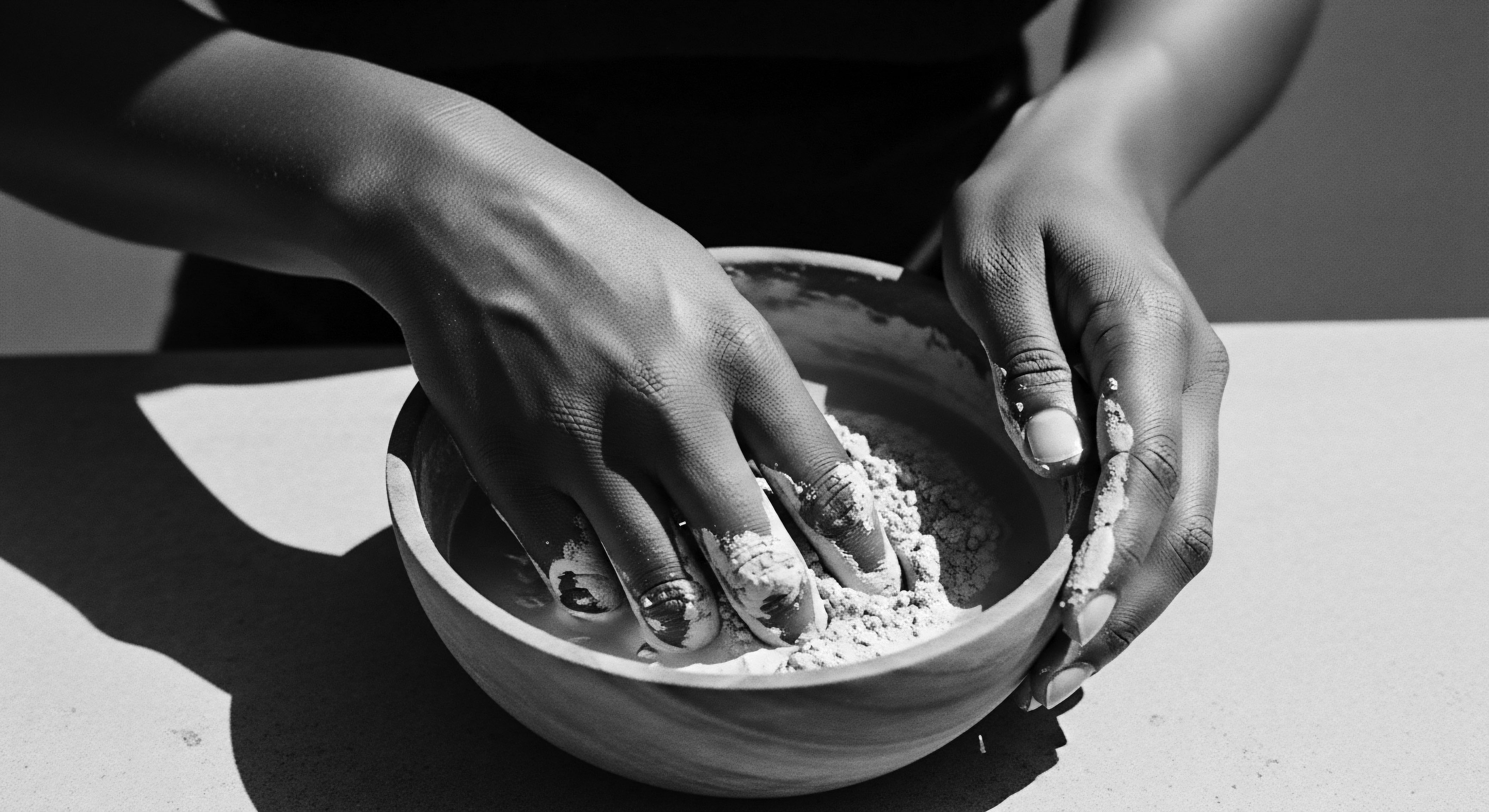
Reflection
To hold a bottle of Jamaican Black Castor Oil is to hold a fragment of memory, a concentrated essence of journeys and resilience. It is a tangible link to a heritage that has weathered the most profound storms, yet continuously finds ways to sprout and flourish. Each application is more than a conditioning treatment; it is an act of communion with a legacy, a living archive of wisdom etched into the very fibers of textured hair.
The story of this oil, from its humble seed origins in ancient Africa to its cultivation in the Caribbean, reflects the enduring spirit of a people who, against all odds, preserved their practices, their knowledge, and their profound connection to the natural world. It speaks to the ingenuity of transforming a simple plant into a cornerstone of care, not just for the hair, but for the very soul. It stands as a silent witness to cultural continuity, a testament to the power of tradition in shaping identity and fostering communal strength.
As we continue to learn and to grow, so too does our understanding of these ancestral remedies deepen, affirming that the path to wellness often circles back to the earth, guided by the luminous wisdom of those who came before us. This is the Soul of a Strand: a profound meditation on textured hair, its heritage, and its care, presented as a living, breathing archive.
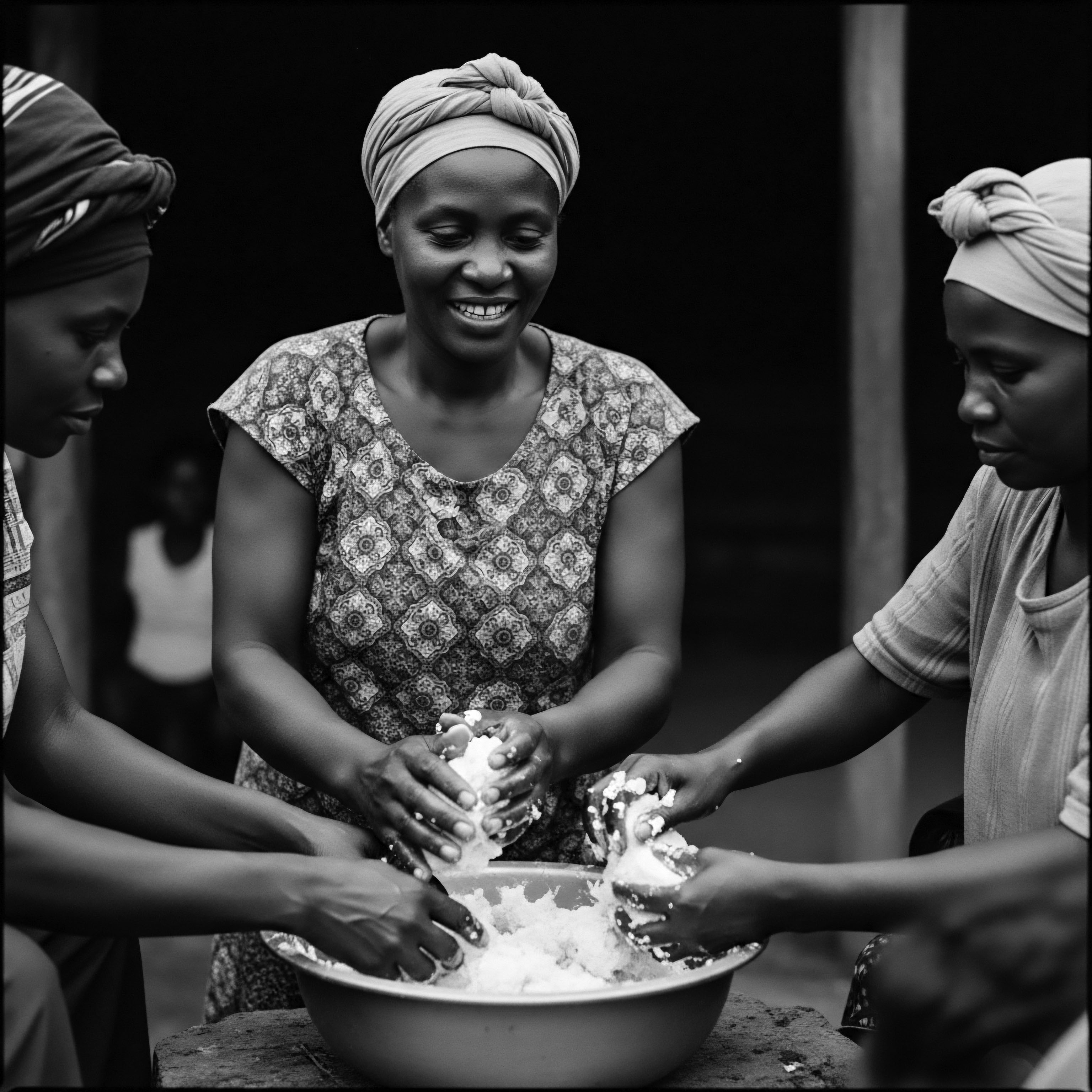
References
- Byrd, A. D. & Tharps, L. D. (2001). Hair Story: Untangling the Roots of Black Hair in America. St. Martin’s Press.
- Murugesan, N. S. (2012). “Isolation of Ricinoleic Acid from Castor Oil Using Solvent Extraction and Column Chromatography.” International Journal of Science and Research, 3(4), 118-121.
- Ogbonna, I. I. (2013). “The Chemistry of Castor Oil and its Industrial Utilization.” Journal of Chemistry and Materials Research, 5(1), 1-10.
- Palmer, K. (2014). “Hair: A Cultural History.” Bloomsbury Academic.
- Potter, E. (2006). “The African Americanization of the Beauty Industry.” Palgrave Macmillan.
- Walker, A. (2007). “Africa and the Americas: Culture, Politics, and History.” ABC-CLIO.
- White, E. (2015). “The Hidden History of Hair.” University of Chicago Press.

